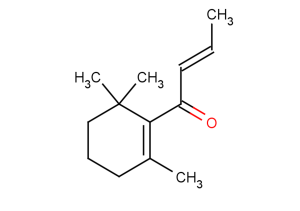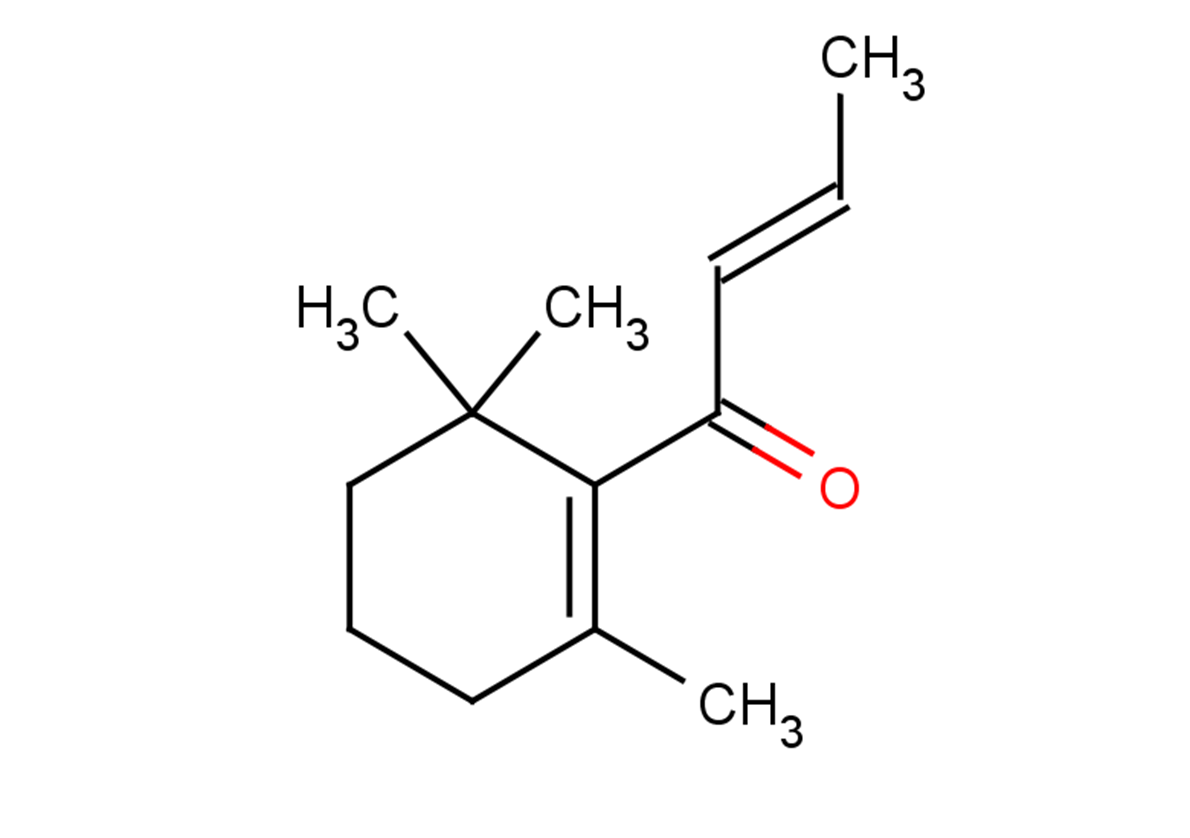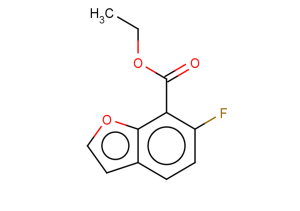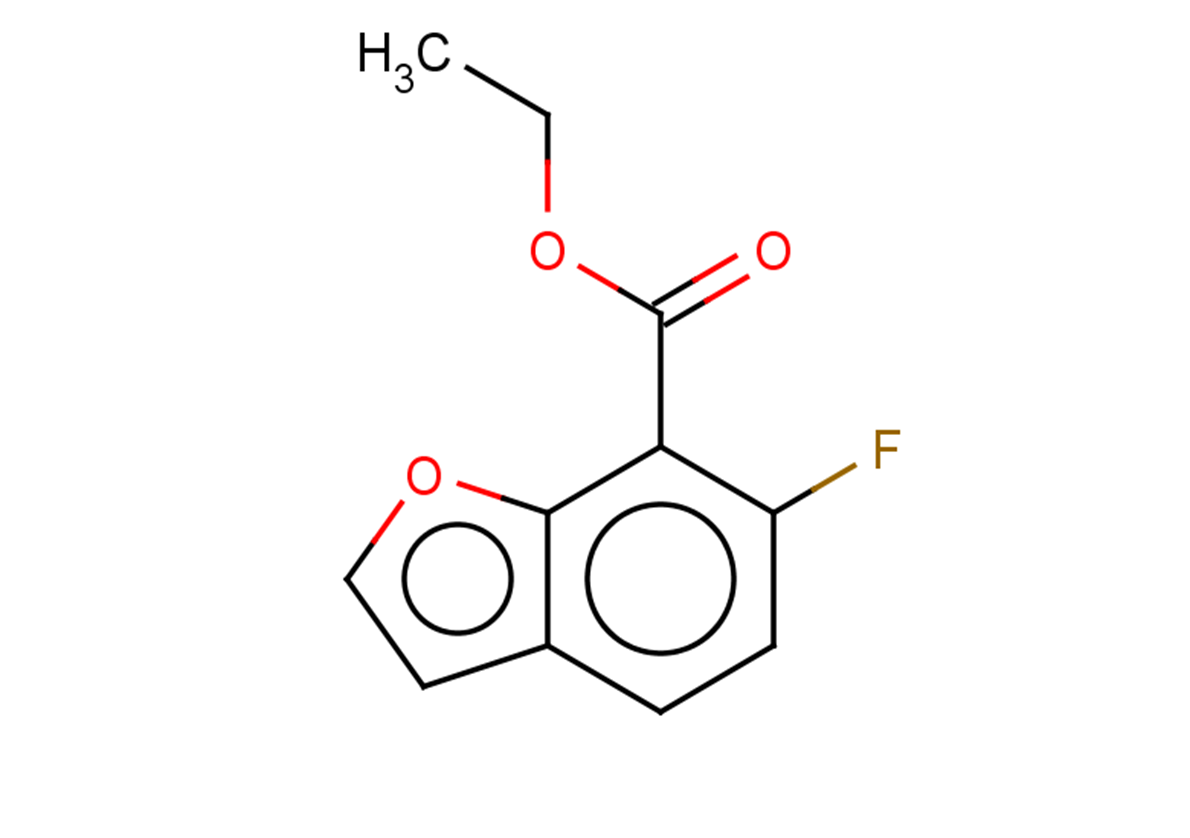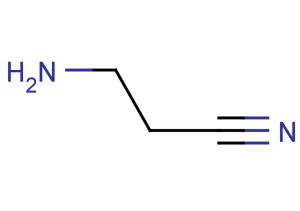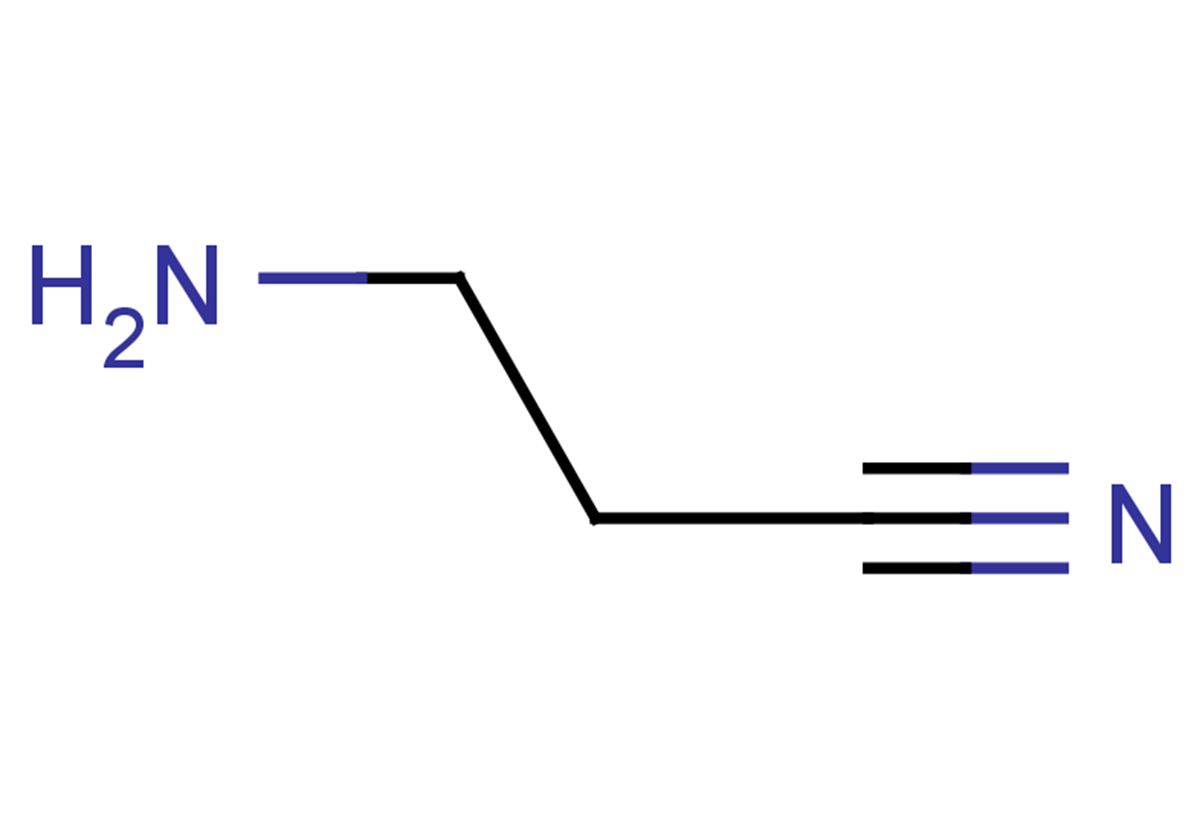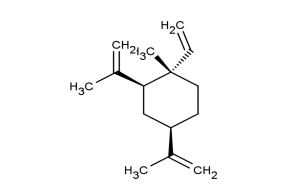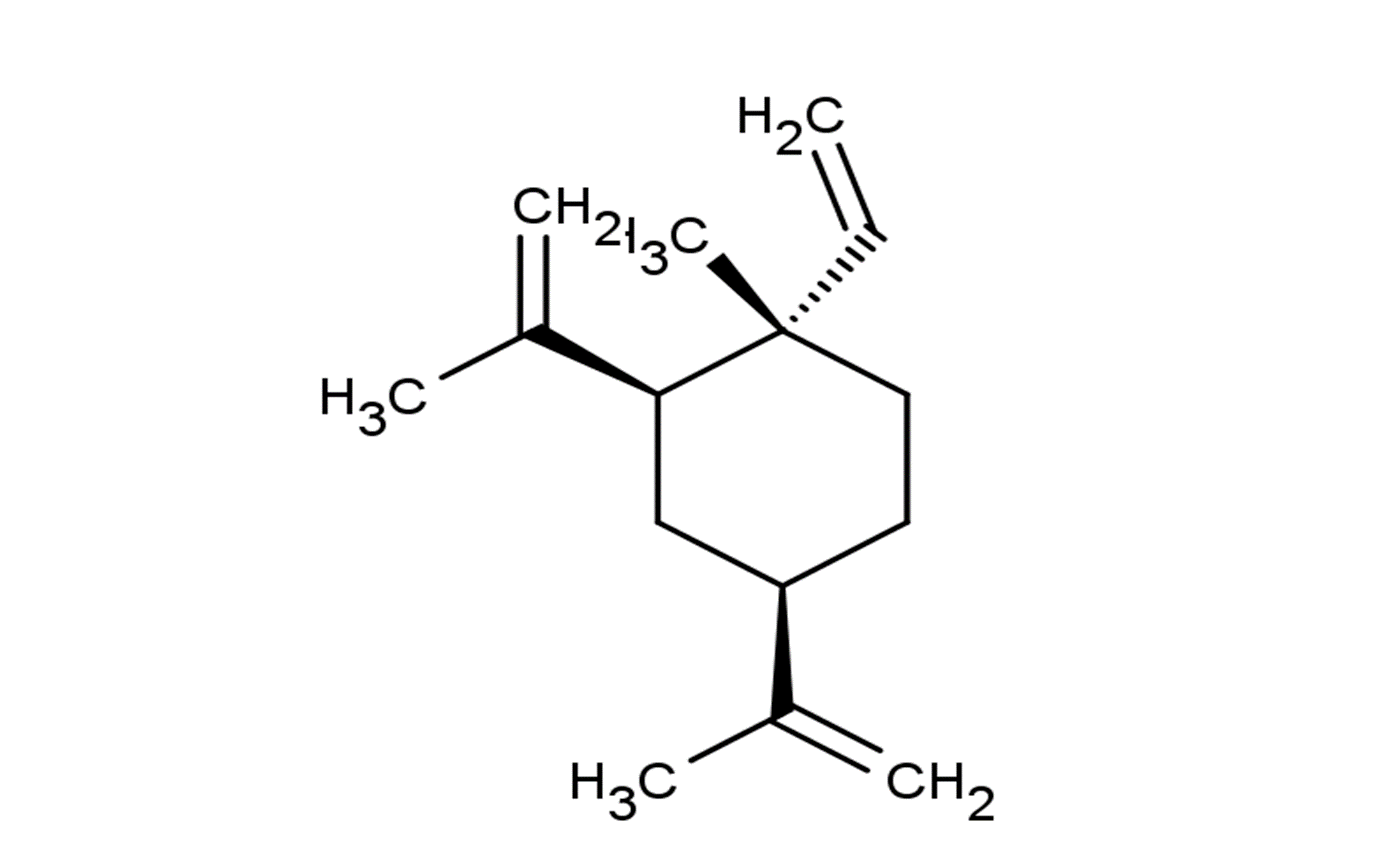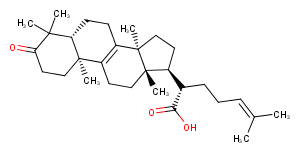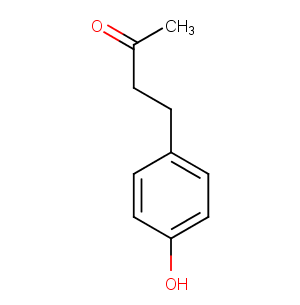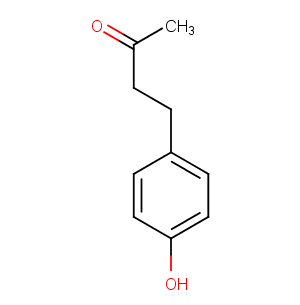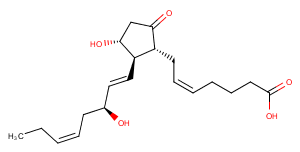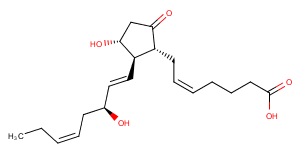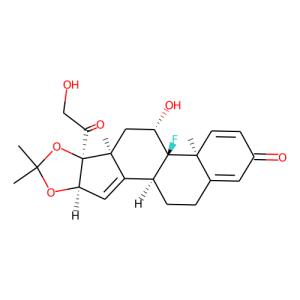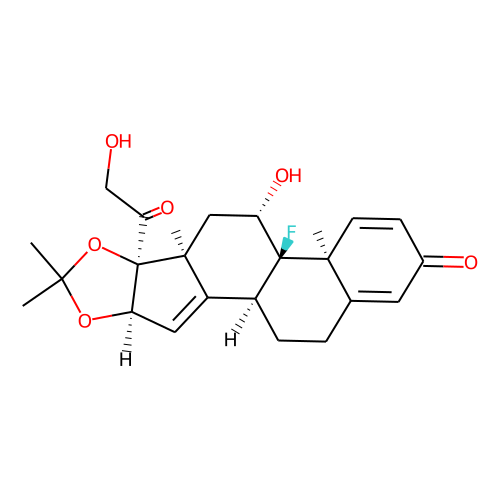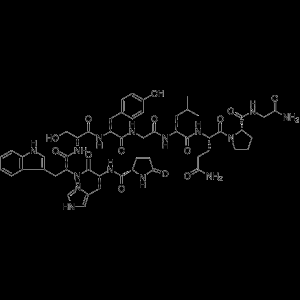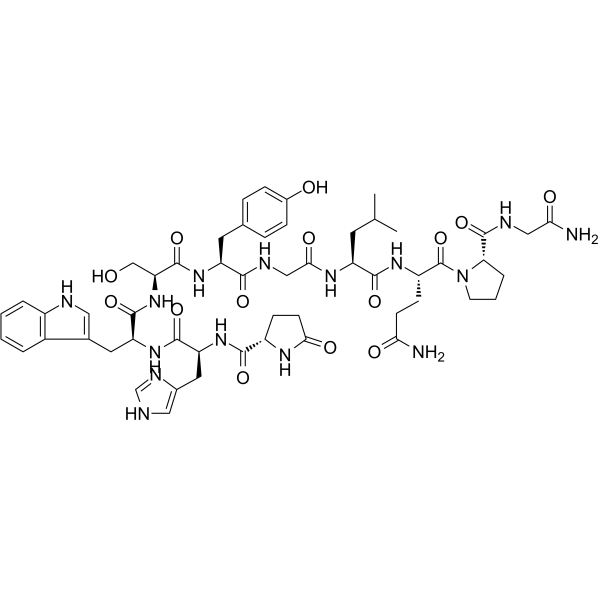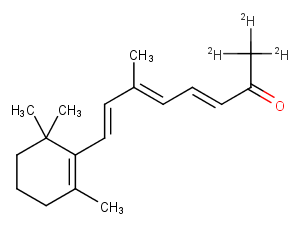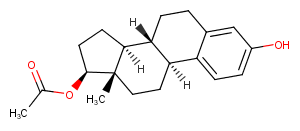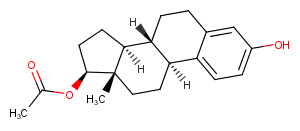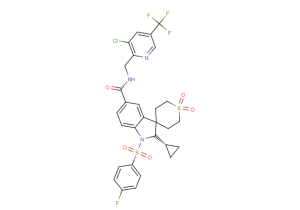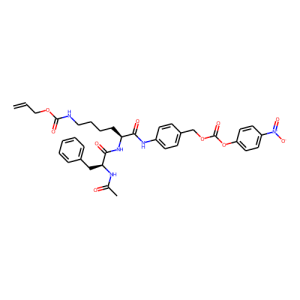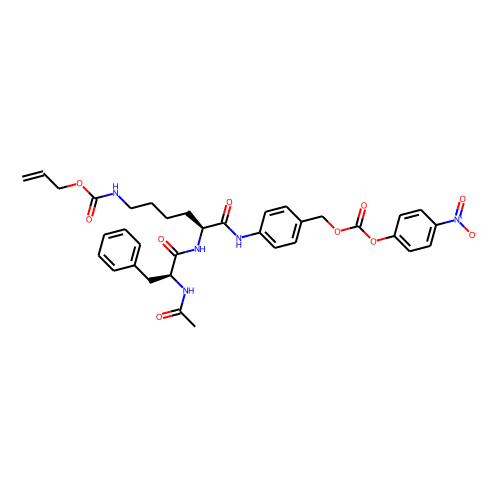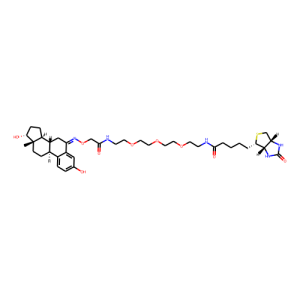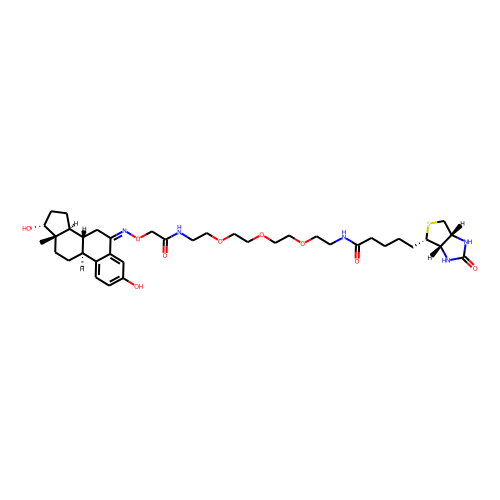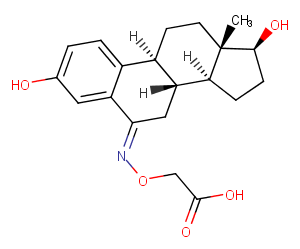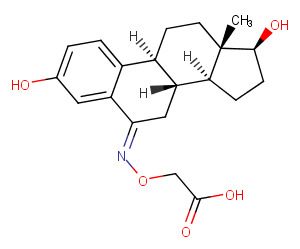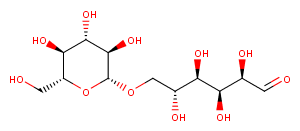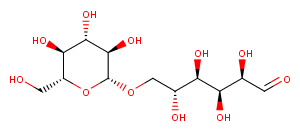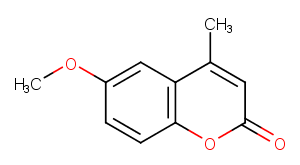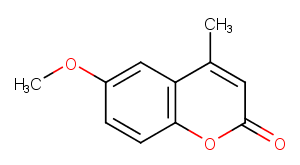TargetMol
β-D-tetraacetylgalactopyranoside-PEG1-N3 is a cleavable linker involving a one-unit polyethylene glycol (PEG) compound, employed during the synthesis of antibody-drug conjugates (ADCs). It serves as a crucial component in the formation of ADCs.
More Information
Supplier Page
β-Damascone
1 mL
| Purity Not Available
TargetMol
β-Damascone are a series of closely related chemical compounds that are components of a variety of essential oils. The damascones belong to a family of chemicals known as rose ketones, which also includes damascenones and ionones. beta-Damascone is a contributor to the aroma of roses, despite its relatively low concentration, and is an important fragrance […]
More Information
Supplier Page
β-Damascone
100 mg
| Purity Not Available
TargetMol
β-Damascone are a series of closely related chemical compounds that are components of a variety of essential oils. The damascones belong to a family of chemicals known as rose ketones, which also includes damascenones and ionones. beta-Damascone is a contributor to the aroma of roses, despite its relatively low concentration, and is an important fragrance […]
More Information
Supplier Page
TargetMol
β-Defensin-1 is a peptide with antimicrobial properties that protects the skin and mucosal membranes of the respiratory, genitourinary, and gastrointestinal tracts.1It inhibits the growth ofB. adolescentis,L. acidophilus,B. breve,B. vulgatus,L. fermentum,B. longum, andS. thermophilusin an antimicrobial radial diffusion assay.2β-Defensin-1 also inhibits the growth of periodontopathogenic and cariogenic bacteria, includingP. gingivalisandS. salivarius, and of susceptibleM. tuberculosisH37Rv but […]
More Information
Supplier Page
TargetMol
β-Defensin-2 is a peptide with antimicrobial properties that protects the skin and mucosal membranes of the respiratory, genitourinary, and gastrointestinal tracts. It inhibits the growth of periodontopathogenic and cariogenic bacteria, includingP. gingivalisandS. salivarius.
More Information
Supplier Page
TargetMol
β-Defensin-3 is a peptide with antimicrobial properties that protects the skin and mucosal membranes of the respiratory, genitourinary, and gastrointestinal tracts. It inhibits the growth of the periodontopathogenic and cariogenic bacteria F. nucleatum, S. mutans, S. sobrinus, S. salivarius, and L. casei (MICs = 12.5-100 mg/l). It also inhibits the growth of S. aureus, S. […]
More Information
Supplier Page
TargetMol
β-Defensin-4 is a peptide with antimicrobial properties that protects the skin and mucosal membranes of the respiratory, genitourinary, and gastrointestinal tracts. It induces migration of monocytes in vitro when used at a concentration of 10 nM but does not affect migration of neutrophils and eosinophils. β-Defensin-4 (30 μg/ml) stimulates gene expression and production of IL-6, […]
More Information
Supplier Page
β-Elemene
1 mL
| Purity Not Available
TargetMol
β-Elemene is a natural product isolated from Curcuma wenyujin, with an antitumor activity and induce cell apoptosis.
More Information
Supplier Page
β-Elemene
20 mg
| Purity Not Available
TargetMol
β-Elemene is a natural product isolated from Curcuma wenyujin, with an antitumor activity and induce cell apoptosis.
More Information
Supplier Page
β-Elemene
100 mg
| Purity Not Available
TargetMol
β-Elemene is a natural product isolated from Curcuma wenyujin, with an antitumor activity and induce cell apoptosis.
More Information
Supplier Page
TargetMol
β-Elemonic Acid (3-Oxotirucallenoic Acid) exhibits anti-inflammatory effects. Beta-Elemonic acid inhibits proliferation by inducing hypoploid cells and cell apoptosis, the anticancer effects of beta-Elemonic acid are related to the MAPK signaling pathway, ROS activation and glutathione depletion in human A549 lung cancer cells. Beta-Elemonic acid exhibits prolyl endopeptidase inhibitory activities.
More Information
Supplier Page
TargetMol
β-Elemonic Acid (3-Oxotirucallenoic Acid) exhibits anti-inflammatory effects. Beta-Elemonic acid inhibits proliferation by inducing hypoploid cells and cell apoptosis, the anticancer effects of beta-Elemonic acid are related to the MAPK signaling pathway, ROS activation and glutathione depletion in human A549 lung cancer cells. Beta-Elemonic acid exhibits prolyl endopeptidase inhibitory activities.
More Information
Supplier Page
TargetMol
β-Elemonic Acid (3-Oxotirucallenoic Acid) exhibits anti-inflammatory effects. Beta-Elemonic acid inhibits proliferation by inducing hypoploid cells and cell apoptosis, the anticancer effects of beta-Elemonic acid are related to the MAPK signaling pathway, ROS activation and glutathione depletion in human A549 lung cancer cells. Beta-Elemonic acid exhibits prolyl endopeptidase inhibitory activities.
More Information
Supplier Page
TargetMol
β-Elemonic Acid (3-Oxotirucallenoic Acid) exhibits anti-inflammatory effects. Beta-Elemonic acid inhibits proliferation by inducing hypoploid cells and cell apoptosis, the anticancer effects of beta-Elemonic acid are related to the MAPK signaling pathway, ROS activation and glutathione depletion in human A549 lung cancer cells. Beta-Elemonic acid exhibits prolyl endopeptidase inhibitory activities.
More Information
Supplier Page
TargetMol
β-Elemonic Acid (3-Oxotirucallenoic Acid) exhibits anti-inflammatory effects. Beta-Elemonic acid inhibits proliferation by inducing hypoploid cells and cell apoptosis, the anticancer effects of beta-Elemonic acid are related to the MAPK signaling pathway, ROS activation and glutathione depletion in human A549 lung cancer cells. Beta-Elemonic acid exhibits prolyl endopeptidase inhibitory activities.
More Information
Supplier Page
TargetMol
β-Elemonic Acid (3-Oxotirucallenoic Acid) exhibits anti-inflammatory effects. Beta-Elemonic acid inhibits proliferation by inducing hypoploid cells and cell apoptosis, the anticancer effects of beta-Elemonic acid are related to the MAPK signaling pathway, ROS activation and glutathione depletion in human A549 lung cancer cells. Beta-Elemonic acid exhibits prolyl endopeptidase inhibitory activities.
More Information
Supplier Page
TargetMol
β-Elemonic Acid (3-Oxotirucallenoic Acid) exhibits anti-inflammatory effects. Beta-Elemonic acid inhibits proliferation by inducing hypoploid cells and cell apoptosis, the anticancer effects of beta-Elemonic acid are related to the MAPK signaling pathway, ROS activation and glutathione depletion in human A549 lung cancer cells. Beta-Elemonic acid exhibits prolyl endopeptidase inhibitory activities.
More Information
Supplier Page
TargetMol
β-Elemonic Acid (3-Oxotirucallenoic Acid) exhibits anti-inflammatory effects. Beta-Elemonic acid inhibits proliferation by inducing hypoploid cells and cell apoptosis, the anticancer effects of beta-Elemonic acid are related to the MAPK signaling pathway, ROS activation and glutathione depletion in human A549 lung cancer cells. Beta-Elemonic acid exhibits prolyl endopeptidase inhibitory activities.
More Information
Supplier Page
TargetMol
β-Endorphin (1-27) is an endogenous peptide that binds to μ-, δ-, and κ-opioid receptors (Kis = 5.31, 6.17, and 39.82 nM, respectively, in COS-1 cells expressing rat receptors). It binds to rat and mouse brain membrane preparations (IC50s = 1.1 and 5.7 nM, respectively) and induces chemotaxis of human monocytes in vitro when used at […]
More Information
Supplier Page
TargetMol
β-Endorphin (1-27) (human) acetate, existing in the hypophysis cerebri and hypothalamus, exhibits antinociception activity. β-Endorphin (1-27) (human) acetate is an agonist of opioid receptor, showing preferred affinity for μ-opioid receptor and δ-opioid
More Information
Supplier Page
TargetMol
β-Endorphin (1-27) (human) acetate, existing in the hypophysis cerebri and hypothalamus, exhibits antinociception activity. β-Endorphin (1-27) (human) acetate is an agonist of opioid receptor, showing preferred affinity for μ-opioid receptor and δ-opioid
More Information
Supplier Page
TargetMol
β-Endorphin (1-27) (human) acetate, existing in the hypophysis cerebri and hypothalamus, exhibits antinociception activity. β-Endorphin (1-27) (human) acetate is an agonist of opioid receptor, showing preferred affinity for μ-opioid receptor and δ-opioid
More Information
Supplier Page
TargetMol
β-Endorphin (1-27) (human) acetate, existing in the hypophysis cerebri and hypothalamus, exhibits antinociception activity. β-Endorphin (1-27) (human) acetate is an agonist of opioid receptor, showing preferred affinity for μ-opioid receptor and δ-opioid
More Information
Supplier Page
TargetMol
β-Endorphin (1-27) (human) acetate, existing in the hypophysis cerebri and hypothalamus, exhibits antinociception activity. β-Endorphin (1-27) (human) acetate is an agonist of opioid receptor, showing preferred affinity for μ-opioid receptor and δ-opioid
More Information
Supplier Page
TargetMol
β-Endorphin (1-27) (human) acetate, existing in the hypophysis cerebri and hypothalamus, exhibits antinociception activity. β-Endorphin (1-27) (human) acetate is an agonist of opioid receptor, showing preferred affinity for μ-opioid receptor and δ-opioid
More Information
Supplier Page
TargetMol
β-Endorphin is an endogenous opioid neuropeptide and opioid receptor agonist that preferentially binds to μ-opioid receptors. Produced by specific neurons within the central and peripheral nervous system, it is one of three endorphins synthesized in humans. It functions to alleviate stress, maintain homeostasis, and regulate neurological pain perception [1].
More Information
Supplier Page
TargetMol
β-Endorphin is an endogenous opioid neuropeptide and opioid receptor agonist that preferentially binds to μ-opioid receptors. Produced by specific neurons within the central and peripheral nervous system, it is one of three endorphins synthesized in humans. It functions to alleviate stress, maintain homeostasis, and regulate neurological pain perception [1].
More Information
Supplier Page
TargetMol
β-Endorphin (β-EP) is an endogenous opioid neuropeptide with diverse biological activities. It is produced via piomelanocortin cleavage in the pituitary gland, hypothalamus, and in lymphocytes, then migrates to its sites of action which include plasma, gut, skin, placenta, cerebrospinal fluid, and cardiac tissues. β-EP induces concentration-dependent decreases in electrically stimulated contraction of the mouse vas […]
More Information
Supplier Page
TargetMol
Endorphin Beta is A substance produced in the brain, especially in the pituitary gland, Endorphin Beta blocks the sensation of pain. Endorphin Beta is produced in response to pain, exercise, and other forms of stress. Endorphin Beta belongs to a group of chemicals called polypeptide hormones.
More Information
Supplier Page
TargetMol
Endorphin Beta is A substance produced in the brain, especially in the pituitary gland, Endorphin Beta blocks the sensation of pain. Endorphin Beta is produced in response to pain, exercise, and other forms of stress. Endorphin Beta belongs to a group of chemicals called polypeptide hormones.
More Information
Supplier Page
TargetMol
β-Endorphin, equine (TFA) is an endogenous opioid peptide, which binds at high affinity to both μ/δ opioid receptors.
More Information
Supplier Page
TargetMol
β-Endorphin, equine (TFA) is an endogenous opioid peptide, which binds at high affinity to both μ/δ opioid receptors.
More Information
Supplier Page
TargetMol
β-Endorphin, equine (TFA) is an endogenous opioid peptide, which binds at high affinity to both μ/δ opioid receptors.
More Information
Supplier Page
TargetMol
β-Endorphin, equine TFA is an endogenous opioid peptide, which binds at high affinity to both μ/δ opioid receptors . β-Endorphin, equine TFA has analgesic properties [1] [2] [3] [4] .
More Information
Supplier Page
TargetMol
β-Endorphin, equine TFA is an endogenous opioid peptide, which binds at high affinity to both μ/δ opioid receptors . β-Endorphin, equine TFA has analgesic properties [1] [2] [3] [4] .
More Information
Supplier Page
TargetMol
β-Endorphin, human, a prominent endogenous peptide, existing in the hypophysis cerebri and hypothalamus,and is an agonist of opioid receptor.
More Information
Supplier Page
TargetMol
β-Endorphin, human, a prominent endogenous peptide, existing in the hypophysis cerebri and hypothalamus,and is an agonist of opioid receptor.
More Information
Supplier Page
TargetMol
β-Endorphin, human, a prominent endogenous peptide, existing in the hypophysis cerebri and hypothalamus,and is an agonist of opioid receptor.
More Information
Supplier Page
TargetMol
β-Endorphin, human, a prominent endogenous peptide, existing in the hypophysis cerebri and hypothalamus,and is an agonist of opioid receptor.
More Information
Supplier Page
TargetMol
β-Endorphin, human, a prominent endogenous peptide, existing in the hypophysis cerebri and hypothalamus,and is an agonist of opioid receptor.
More Information
Supplier Page
TargetMol
TargetMol
TargetMol
β-Estradiol-6-CMO-PEG3-biotin serves as a cleavable 3-unit PEG ADC linker for the synthesis of antibody-drug conjugates (ADCs)[1].
More Information
Supplier Page
TargetMol
β-Estradiol-6-CMO-PEG3-biotin serves as a cleavable 3-unit PEG ADC linker for the synthesis of antibody-drug conjugates (ADCs)[1].
More Information
Supplier Page
TargetMol
β-Estradiol-6-one 6-(O-carboxymethyloxime) is an alkyl chain-based PROTAC linker utilized for PROTAC synthesis[1].
More Information
Supplier Page
TargetMol
β-Estradiol-6-one 6-(O-carboxymethyloxime) is an alkyl chain-based PROTAC linker utilized for PROTAC synthesis[1].
More Information
Supplier Page
TargetMol
β-Galactosidase is a glycoside hydrolase that hydrolyzes the β-glycosidic bonds formed between galactose and its organic moieties. In E.coli , the lacZ gene is the structural gene of β-galactosidase, which can be used as part of the induction system lac operon. β-Galactosidase can hydrolyze lactose to form glucose and galactose, and enter glycolysis; it can […]
More Information
Supplier Page
TargetMol
β-Galactosidase is a glycoside hydrolase that hydrolyzes the β-glycosidic bonds formed between galactose and its organic moieties. In E.coli , the lacZ gene is the structural gene of β-galactosidase, which can be used as part of the induction system lac operon. β-Galactosidase can hydrolyze lactose to form glucose and galactose, and enter glycolysis; it can […]
More Information
Supplier Page
β-Gentiobiose
1 mL
| Purity Not Available
TargetMol
β-Gentiobiose
20 mg
| Purity Not Available
TargetMol



